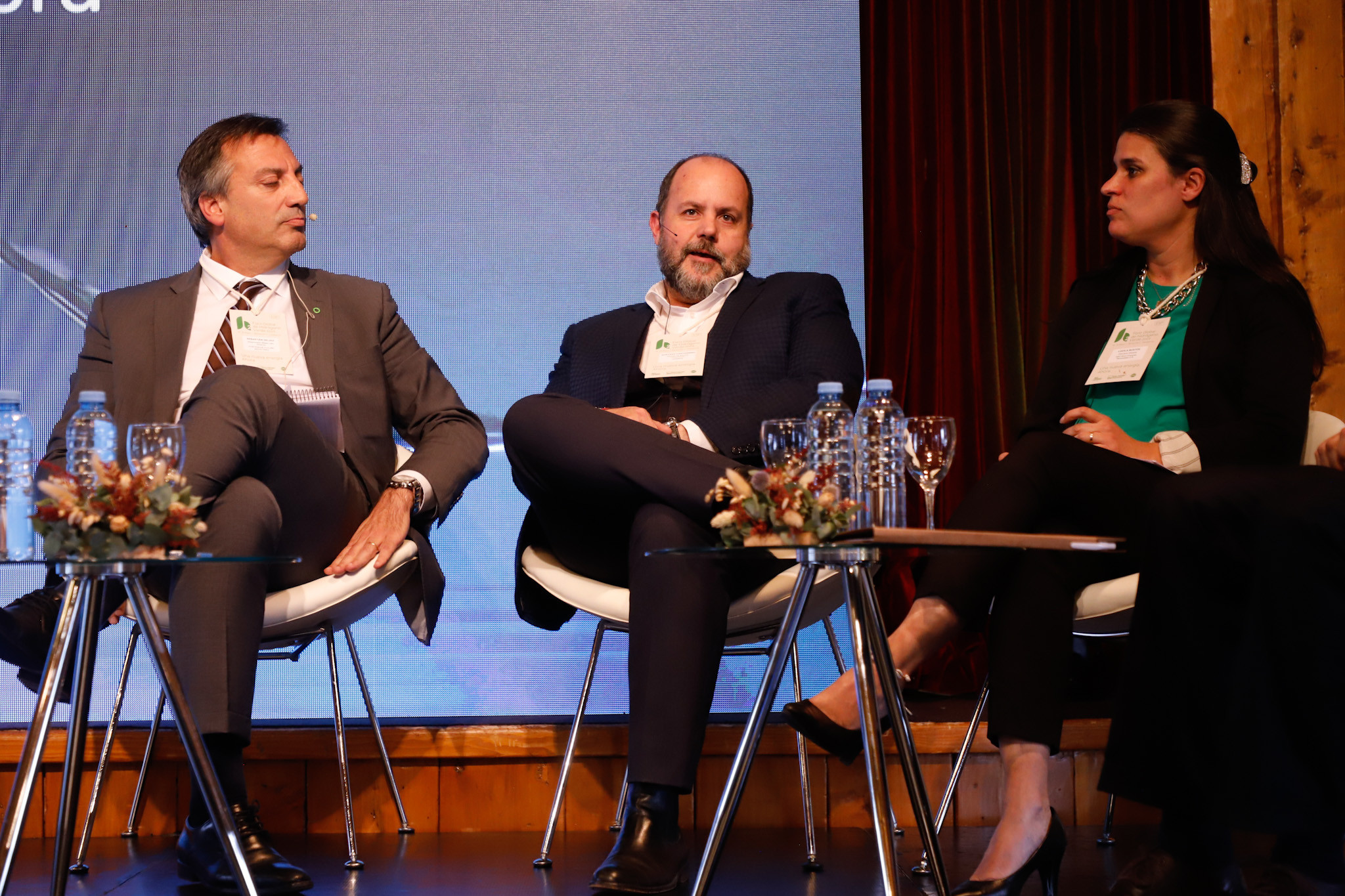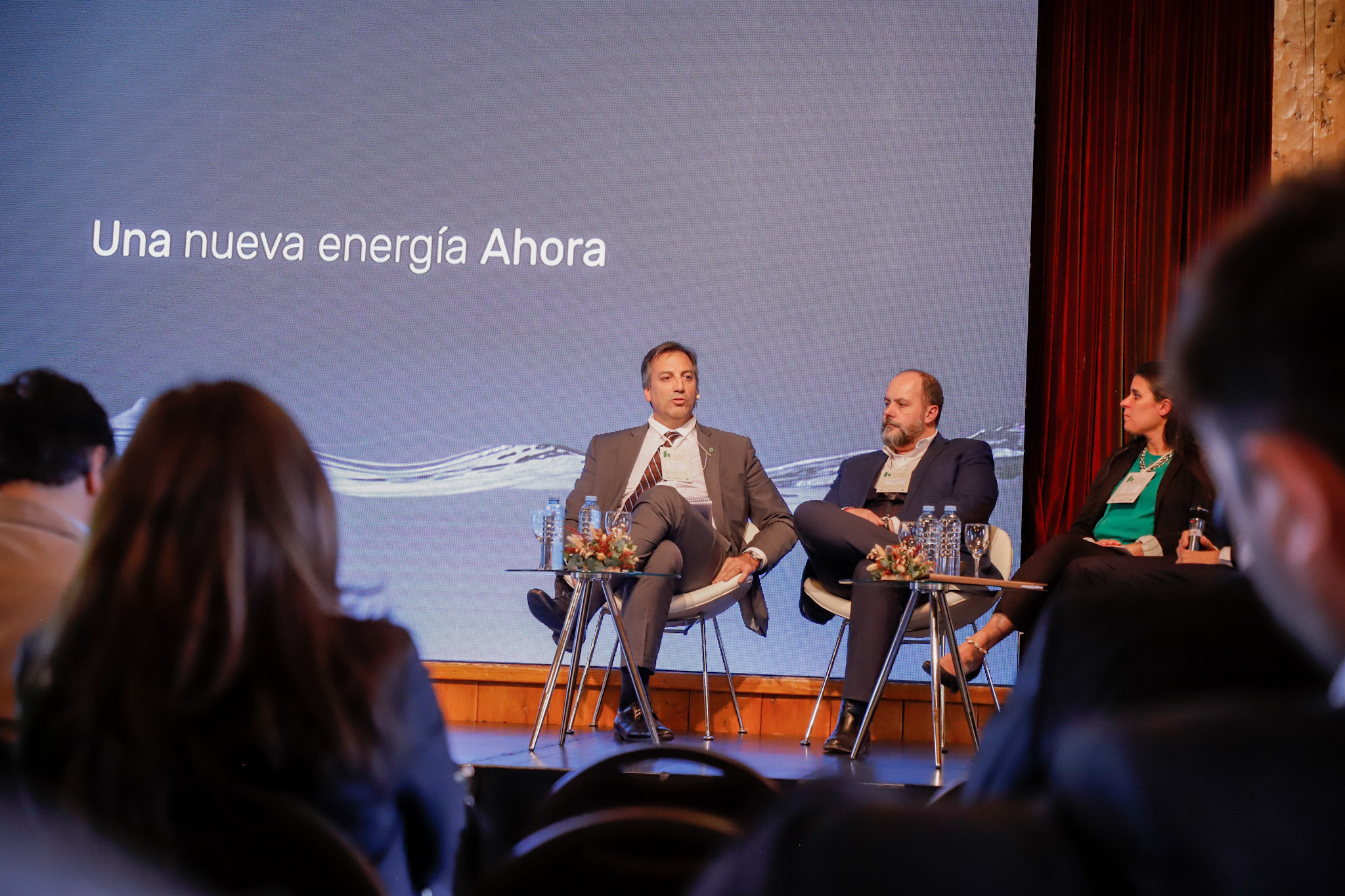Green Hydrogen
Energy transition: the challenges Argentina faces for 2030
The need for a regulatory framework and long-term legislation that provides continuity for the private sector; predictability and the possibility of being part of an energy market for which Argentina has a huge potential, were some of the issues addressed during the panel "Current challenges in the framework of the companies' projects. Vision to 2030 of the development of the H2V value chain in Argentina within the energy transition", during the Global Green Hydrogen Forum.
Fecha: 18 de mayo de 2023
Lucila Bustos, Executive Managing Director, ABO Wind; Gustavo Castagnino, Corporate Affairs, Regulatory Issues & Sustainability/ESG Director, Genneia, and Sebastián Delgui, Government Affairs Latin America, Fortescue Future Industries presented the experiences of the companies in the country and the province.
First, the Executive Managing Director, ABO Wind, summarized the great challenges that a company with more than 30 years of experience has had in the renewable energy sector, including the projects related to green hydrogen in Argentina and the active projects in Río Negro.

"Río Negro is a province that has always collaborated and has opened its doors to us during the different stages of the development of projects of different scales," he said, and pointed out that hydrogen projects are very challenging, and considering the scale they will have, they require strategic partners with whom we are already working.
"Hydrogen has a great future in Argentina in the medium term, we have to start working now for when the right time comes; that is, green hydrogen needs renewables, and therefore it is necessary to continue developing an industry, and there has to be a promising market for them in the long term," he explained.

He emphasized that the country's endless capacity of adaptation can ensure a renewable market, which will result in reducing costs, incorporating technology, having quality labor, among other advantages.
"We think it is important to continue promoting renewable energies because although today it is possible for both types of energy to coexist, we must be looking to the future, where the transition is essential," he said.
Finally, he invited to continue encouraging the industry to be in a position to be profitable once the time comes because 2025 is tomorrow, and today we have to start thinking about 2030".
Gustavo Castagnino, a reference of a renewable energy company in Argentina with almost one gigawatt of installed capacity in Argentina, 7 wind farms and one under construction, and solar farms in San Juan under construction.
He assured that the company has a view aimed at the decarbonization of the corporate sector, and that hydrogen is the way the world is moving to, with a greater integration of renewable energies. "Today, any company in any sector is under positive pressure to meet increasingly higher standards," he stated.
He pointed out that the sector must work for conditions that are more virtuous in order to meet the existing objectives as a country and as a company.
Regarding the role of the State, he noted that work must be done to install in the authorities the need to build more infrastructure. However, he highlighted the attention given to renewable energy sectors in order to keep them growing.
In this regard, he also welcomed both the legislation and the regulatory framework for renewable energies, which has already gone through three administrations, and in each of them positive aspects were introduced. This allowed the country to go from two percent of the installed capacity of the total energy matrix to almost 15 percent, which will allow, if the conditions are right, to meet the objectives.
Finally, the representative of the Australian company Fortescue Future Industries, Sebastián Delgui, emphasized the desire and commitment to lead the global development of hydrogen, and explained concrete steps taken towards the objective.
"The company is convinced that the development of this business is in scale, and therefore pursues large projects in which technology plays a key role," he emphasized, and mentioned important steps made in the market.
"The company has more than one hundred projects mapped in the world and Latin America is a key region for the company; two years ago we arrived in Rio Negro and bet on the province that already had its hydrogen strategy. Today we already have a pre-feasibility project in Sierra Grande and environmental impact studies", he summarized.
"We have to help to clear the uncertainty that hydrogen has, and for that we have to consider what is happening in the world", he said and assured that Argentina has to give itself the opportunity to stop thinking in the present situation and start thinking in the long term.

He also emphasized the importance of fostering public-private cooperation given that investment intentions exist, but companies need a virtuous framework and legal certainty, an issue that is discussed on a daily basis.
"Fortescue is very committed, we believe that hydrogen is an energy vector that will replace fossil fuels, and that this has to be green, so we are working to find the scale and lower costs," he added.
Finally, he welcomed the upcoming submission of the draft law to Congress, "we are anxious to know and evaluate it; we have no doubt that green hydrogen is an excellent opportunity for investment and development".
"Establishing a national strategy for hydrogen is fundamental; it is necessary to work in a federal way in regulated and transparent public consultation processes so that these projects can become a reality: it is not possible to develop projects of scale without the best Law", he concluded.
Daniel Afione, Vice-president of AITA (Association of Automotive Engineers), Director of Innvira (climate change consultant), moderated the panel.
